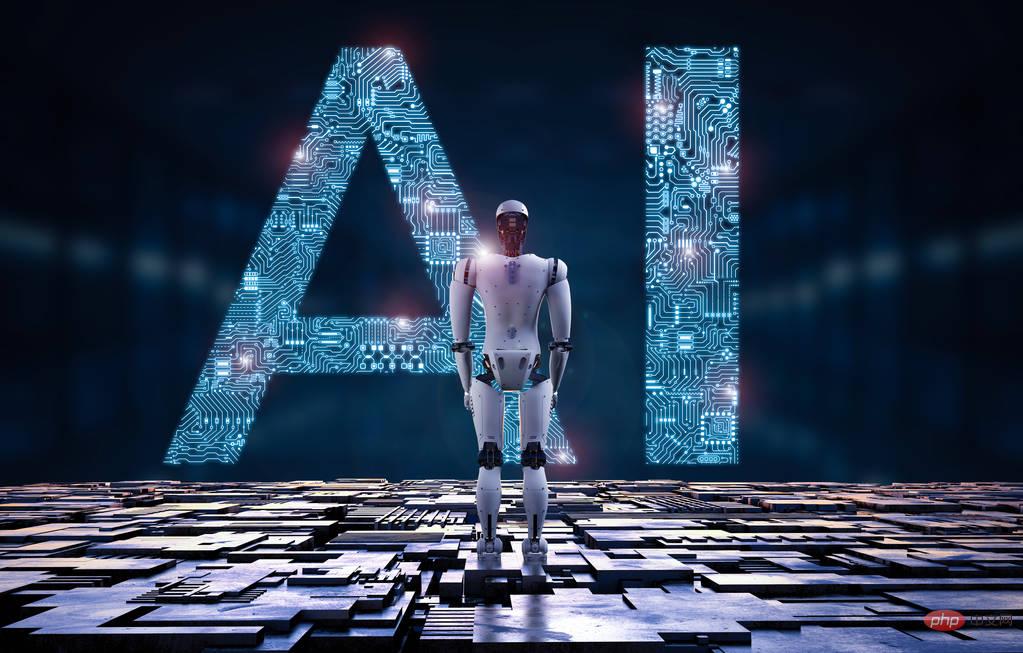Home >Technology peripherals >AI >Artificial intelligence can overcome human weaknesses
Artificial intelligence can overcome human weaknesses
- PHPzforward
- 2023-04-08 20:11:03786browse
Many of the advantages of artificial intelligence are well known, understood, and touted, but its limitations are also obvious. However, there are some other notable features of artificial intelligence that are not often mentioned but are worthy of attention.

Advantages
AI applications can perform extremely complex tasks with ease. It can provide personalized recommendations for the next song you might like, or pick out the one showing a problem from millions of X-rays. Furthermore, it is able to complete such tasks with a volume and accuracy unmatched by human experts. Monotonous yet important jobs can be completed perfectly and without complaint.
Limitations
At the same time, there are many articles saying that humans have capabilities that artificial intelligence lacks. These articles generally argue that humans and AI must work together, with AI augmenting a wider range of human capabilities. We can imagine, predict, feel, and judge changing situations. Because broader general artificial intelligence has yet to be achieved, current AI models — which excel at narrow tasks — still benefit from human guidance.
It is obvious that the strengths of artificial intelligence directly correspond to the weaknesses of humans. Unlike humans, AI understands probability, does not introduce bias, is consistent, and avoids unnecessary risks.
Probability vs Outcome
Humans understand outcomes, but are generally not good at dealing with probabilities. Monty Hall’s Let’s Make a Deal is an example where humans show a lack of understanding of probabilities and prior updates. In this game, there are three doors: one with a car and the other two with goats. The contestants choose a door at random, and Monty chooses to open a door with a goat. Monty then gives the contestants a chance to switch to another closed door. Should they? It turns out that by opening a door, Monty gives the contestant extra information, giving the contestant a two-thirds chance of winning the car if he always switches. Humans tend to answer this type of question incorrectly, but AI can answer it perfectly.
Prejudice
Humans have many biases, whether you call them "gut feelings" or anything else. Confirmation bias is probably the most common: humans seek out and interpret information that supports a preconceived hypothesis or theory. Two people watching the same news program may come to different conclusions about the day's events. By contrast, bias only manifests itself in AI through the data humans feed it to learn. AI biases are limited to limited data sets rather than the ever-changing complexity of human experience, memories, beliefs, and fears. In this sense, AI bias is arguably more discrete and solvable than human bias.
Consistency
AI is painfully consistent. Unless otherwise stated, AI will act as humans would always ask it to do. One of the consistent characteristics of human beings is that they are inconsistent in terms of exercise, diet, and routes to work. Furthermore, humans find rational explanations for their inconsistencies. It is not incomprehensible that the same patient presenting to the same doctor with the same symptoms may receive different diagnoses at different times. Artificial intelligence ensures the consistency of procedures and results, provided that there are no huge deviations in the basic population.
Risk
Artificial intelligence will not take risks, but humans will. This is why human intelligence is expected to augment artificial intelligence. The power of human intelligence is taking risks and betting on them. For example, betting on electric cars without algorithmic support. But sometimes this risk manifests itself as a power imbalance, such as the Space Shuttle Challenger disaster that killed the crew. Although an engineer urged a delay in the launch, citing a design flaw in the O-ring seal, the shuttle lifted off as planned and exploded a minute after takeoff. In her analysis of the fatal 1986 disaster, sociologist Diane Vaughan coined the term "normalization of deviance" to describe teams becoming desensitized to unhealthy practices. The AI will objectively evaluate and decide to postpone the launch.
So, artificial intelligence cannot imagine, predict, feel and judge, but understands probability, does not introduce new biases, remains consistent, and avoids unnecessary risks. The facts that humans are able to perceive and judge may not always be to their advantage.
The above is the detailed content of Artificial intelligence can overcome human weaknesses. For more information, please follow other related articles on the PHP Chinese website!
Related articles
See more- Technology trends to watch in 2023
- How Artificial Intelligence is Bringing New Everyday Work to Data Center Teams
- Can artificial intelligence or automation solve the problem of low energy efficiency in buildings?
- OpenAI co-founder interviewed by Huang Renxun: GPT-4's reasoning capabilities have not yet reached expectations
- Microsoft's Bing surpasses Google in search traffic thanks to OpenAI technology

